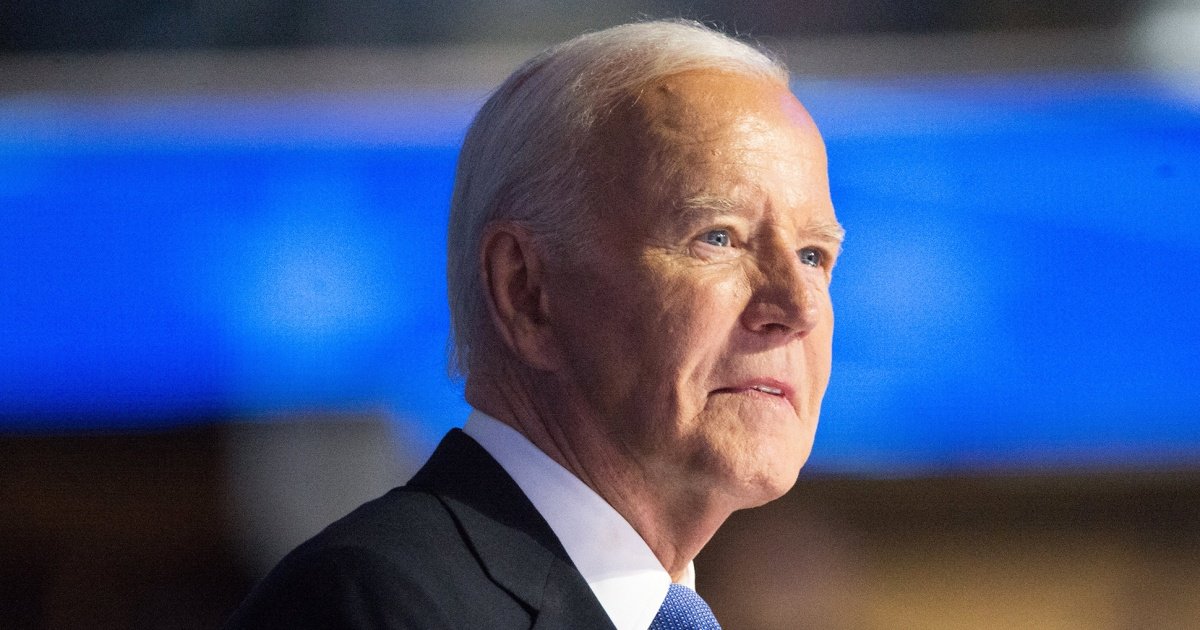President Joe Biden’s administration is considering ways to keep TikTok available in the U.S. if a ban that takes effect Sunday goes through, according to three people familiar with the discussions.
“Americans should not expect TikTok to suddenly be banned on Sunday,” an administration official said, adding that officials are “exploring options” on how to implement the law so that TikTok doesn’t go down on Sunday.
If the administration moves forward with such a plan, it would mean that the downfall of the popular app would not define his last full day in office, and would shift the issue to Donald Trump, who will be inaugurated on Monday.
At the same time, Mike Waltz, Trump’s incoming national security adviser, told Fox News on Wednesday that the president-elect is willing to intervene to preserve access to the Chinese-owned video app in the US market. And Pam Bondi, Trump’s pick for attorney general, refused to commit to enforcing the ban when asked about it during her Senate confirmation hearing on Wednesday.
Taken together, the measures represent parallel efforts by rival presidents to execute a maneuver to bypass Congress and the Supreme Court, which is poised to rule on the ban at any moment.
Still, a White House official insisted that not enforcing the ban, if it stands, is not an option.
“We are not considering postponing the execution,” the official said. “By law, we don’t believe we have the authority to do that.”
Biden and Trump’s positions are reversals of their former support for banning the app.
Trump’s transition team did not respond to requests for comment on the plan.
TikTok is considering its options, including possibly having the app go down on Sunday, although it could also allow the app to remain active but without future updates or bug fixes.
The law in question required ByteDance, TikTok’s China-based owner, to divest from the company and find a third-party buyer to take over within nine months. That window closes on Sunday. The law also gives the president authority to grant a one-time 90-day extension if “significant progress” has been made toward that divestment.
The measure was enacted in the name of national security, as lawmakers believed that Americans’ data was at risk of being compromised by China, or that China could influence Americans by controlling content on TikTok. TikTok, which has long said those concerns are unfounded, and some of its users sued to block the law, challenging it from a First Amendment standpoint.
Without a sale, a reprieve for TikTok would mean those national security concerns would remain, at least for now, unresolved.
But just days before the potential ban, scores of American TikTok users have downloaded other Chinese alternatives that raise similar security concerns.
Trump, who tried and failed to implement a ban during his first term, promised during last year’s election campaign to “save TikTok.” Biden signed the ban into law as part of a $95 billion measure providing aid to Ukraine and Israel in April. But now his White House is trying to take the teeth out of the law.
Rep. Ro Khanna, D-Calif., a longtime Biden ally, is among a small group of lawmakers who have appealed to the White House and the Supreme Court to stop the ban.
“I’m hopeful that President Biden will hear the millions of voices that don’t want the light to go out on this app,” Khanna said. “He has the power to extend the timeline to try to have a solution that prevents the application from being closed.”
Sen. Ed Markey, D-Mass., also said he conveyed his concerns about the ban to White House officials and asked them to delay it.
He said they responded that “they would take it into consideration,” but did not give a clear answer as to what would happen.
Late last month, Trump filed a brief with the Supreme Court urging it to postpone implementation of that part of the law, so that the incoming president could “seek a negotiated resolution” to avoid shutting down TikTok. In that brief, Trump attorney John Sauer argued that the president-elect “received a powerful electoral mandate from American voters to protect the free speech rights of all Americans, including the 170 million Americans who use TikTok.” .
Days later, Trump took to his Truth Social platform to ask, “Why would I want to get rid of TikTok?”
He attached a graph showing his extensive reach on the short-form video app, which has 170 million users in the United States.
Supreme Court justices last week appeared unconvinced by TikTok’s free speech arguments, though they could decide to temporarily block the law while continuing to rule against the social media company.
During arguments, Chief Justice John Roberts pointed to Congress’ conclusion that TikTok’s parent company is subject to Chinese laws requiring it to assist in intelligence gathering.
“So, we’re supposed to ignore the fact that the ultimate father is, in fact, subject to doing intelligence work for the Chinese government?” asked.
Addressing concerns about free speech, Roberts said that “Congress doesn’t care what’s on TikTok.”
The law “does not say that TikTok has to stop,” he added. “They say China should stop controlling TikTok.”
While TikTok’s Asian headquarters is located in Singapore, its parent company ByteDance resides in Beijing.
Some congressional Republicans who voted for the TikTok bill said they hope Trump will step in and negotiate a sale to U.S. interests once he takes office.
“They have to divest by law, so Trump can play an effective role in finding a buyer… He considers himself a high-level negotiator,” said Rep. Mike McCaul, R-Texas, a China hawk who served as chairman of the committee. of Foreign Affairs. when Congress passed the legislation last year. “Otherwise, I guess it will close unless I can find a way to get rid of it.”
“A lot of these influencers rely on TikTok,” he continued. “They don’t want to change, but ByteDance is controlled from Beijing. He is simply not a threat to Congress but to our children.”
Sen. John Kennedy, R-Louisiana, said there is only one path for TikTok if it wants to continue operating in the United States: divest.
“Congress already approved the bill,” he said. “What I hope is that the owners of TikTok come forward and say, ‘We will never share Americans’ data with the Chinese Communist Party and this is how it will be enforced: by divesting from the parent company.’






